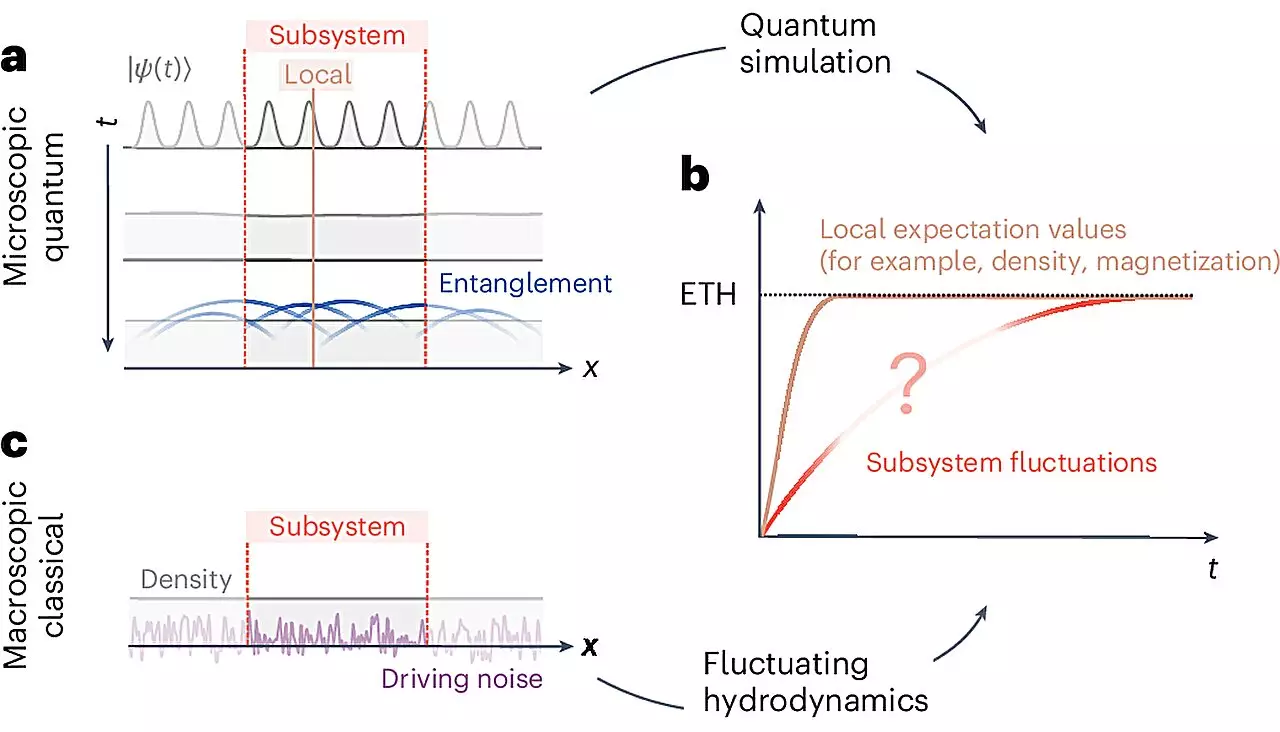The world of quantum physics has always been shrouded in mystery and complexity. The behavior of quantum many-body systems, in particular, has long remained a challenge to physicists due to their chaotic and intricate nature. However, a recent study conducted by a research team led by Professor Monika Aidelsburger and Professor Immanuel Bloch sheds new light on the potential simplicity that lies within these complex systems.
The study, recently published in the journal Nature Physics, delves into the concept of fluctuating hydrodynamics (FHD) as a tool to describe the behavior of quantum many-body systems in a macroscopic way. Rather than delving into the microscopic interactions of individual particles, FHD focuses on the macroscopic diffusion process that governs the overall behavior of the system. This approach simplifies the understanding of chaotic systems by emphasizing the importance of a single quantity: the diffusion constant.
While chaotic classical systems have shown promise in being described by FHD, the question remains as to whether the same can be said for chaotic quantum systems. Quantum particles operate under fundamentally different laws of physics, characterized by phenomena like uncertainty and entanglement. Despite their microscopic complexity, the researchers have found indications that even chaotic quantum systems can be simplified through an FHD description.
To test this hypothesis, the research team focused on studying the behavior of chaotic many-body quantum systems using ultracold cesium atoms in optical lattices. By observing the dynamics of the system in a non-equilibrium initial state, the team was able to measure both the average density of particles and their fluctuations. The results indicated that FHD not only qualitatively but quantitatively described the behavior of the system, suggesting that chaotic quantum systems can indeed be simplified to a macroscopic diffusion process.
The study by Professor Monika Aidelsburger and Professor Immanuel Bloch provides valuable insights into the potential simplicity of chaotic quantum many-body systems. By focusing on fluctuating hydrodynamics, the researchers have shown that even in the realm of quantum physics, complex systems can be described through simple diffusion equations with random noise. This opens up new possibilities for understanding and analyzing the behavior of quantum systems, paving the way for further exploration and discovery in the field of quantum physics.

